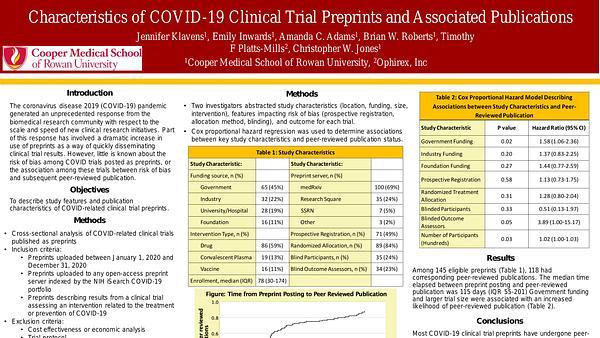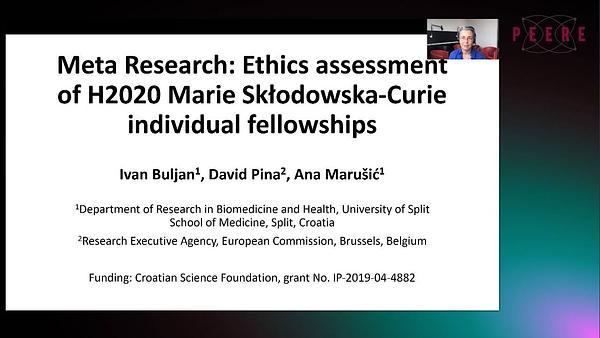Would you like to see your presentation here, made available to a global audience of researchers?
Add your own presentation or have us affordably record your next conference.
keywords:
retractions
misconduct
editorial and peer review process
Objective There is no validated or empirically informed agreement on early warning signs of research fraud or misconduct. This study aimed to explore definitions, early warning signs, and identification strategies for research fraud and misconduct to inform the future development of a screening tool and wider efforts to reduce research fraud and misconduct.
Design Semistructured interviews were conducted with experts in systematic reviews, biomedical publishing, and identifying/preventing research fraud and misconduct. Participants were identified through snowball sampling and were recruited via email. Participants were asked about their experiences with research fraud and misconduct, how they define and identify potentially problematic studies, and what they would recommend for inclusion in a screening tool. A thematic analysis approach was used to identify major concepts. This study was approved by the University of Sydney Human Research Ethics Committee. The COREQ reporting guidelines were followed.
Results Forty-nine potential participants were contacted and 30 were interviewed. (Reasons for not interviewing included nonresponse n = 14, not available n = 4, passed invitation to colleagues n = 1, and email failure n = 1. Contacts could have more than 1 reason for not interviewing.) Participants were from 12 countries, including 4 low- and middle-income countries, and had expertise or experience in meta-research (n = 12), research (n = 11), publishing (n = 8), and whistleblowing (n = 8). Participants described research fraud as a growing issue, with a lack of widely accessible resources or education to assist in flagging problematic studies. They discussed a range of early warning signs that could be contained in a screening tool for use at either the prepublication or postpublication stage. Signs included no ethics/protocol registration; alerts on existing platforms (eg, Retraction Watch, PubPeer, plagiarism detectors, Stats Check); submission irregularities (eg, unexplained authorship changes, peer review concerns); design issues (eg, aim not meaningful, method implausible); and problematic results (eg, figure manipulation, extreme outlying data, improbable numbers in randomized clinical trial baseline data). Participants expressed concerns about pressure on researchers to publish, which facilitated high-volume, low-quality outputs. There was discussion about a range of upstream changes to the academic and publishing systems that might reduce production and/or publication of problematic studies, including research fraud.
Conclusions Participants described many early warning signs of research fraud or misconduct. Collating these into a screening tool may be useful for reviewers, editors, and publishers. An open-access collection of resources with detailed information on further investigation of potentially problematic studies could help research educators to develop and disseminate knowledge and skills in these areas. Longer- term, upstream changes are also needed to enhance research quality and reduce misinformation.
Conflict of Interest Disclosures Stephanie Boughton is employed by Cochrane as research integrity editor. Lisa Bero is senior research integrity editor, Cochrane, for which the University of Colorado receives remuneration. Lisa Bero is a member of the Peer Review Congress Advisory Board but was not involved in the review or decision for this abstract.
Additional Information Lisa Bero is a co–corresponding author.


